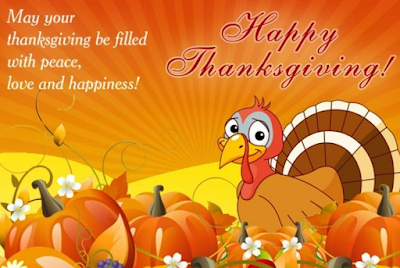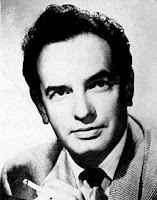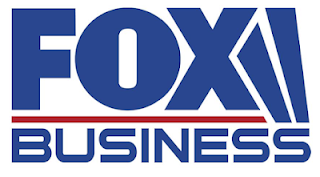 |
| Thomas Edison 1878 |
➦In 1877..U-S inventor Thomas Edison demonstrates his hand-cranked phonograph for the first time. Edison was one of the great inventors and designers in the history of the world. He invented the first practical light bulb, the motion picture camera and the phonograph. Others had attempted to invent the latter but Edison's was the first to actually reproduce the sound.
The phonograph was Edison's first major invention and the one that earned him the moniker "the wizard of Menlo Park" as the invention was so unexpected by the public as to appear magical. His first invention recorded on tinfoil around a grooved cylinder, and although the recordings could only be played a few times due to low quality, Edison's reputation was cemented.
He demonstrated the device on November 29, 1877, having announced its invention days before. He would patent it later that February. Recalling a demonstration in December, an employee of Scientific American magazine wrote: " "In December, 1877, a young man came into the office of the SCIENTIFIC AMERICAN, and placed before the editors a small, simple machine about which very few preliminary remarks were offered. The visitor without any ceremony whatever turned the crank, and to the astonishment of all present the machine said: "Good morning. How do you do? How do you like the phonograph?" The machine thus spoke for itself, and made known the fact that it was the phonograph..."
Edison did not improve on his design but Alexander Graham Bell invented an improved phonograph using wax cylinders in 1880.
 |
| Harry Bartell |
➦In 1913...Announcer and actor Harry Bartell born (Died at age 90 – February 26, 2004). With his rather youthful sounding voice, Bartell was one of the busiest West Coast character actors from the early 1940s until the final end of network radio drama in the 1960s.
He was the Petri Wines announcer who interacted with “Dr. Watson” on 1940’s episodes of “The New Adventures of Sherlock Holmes,” and in the ’60’s was the announcer on CBS Radio’s “Dear Abby.” His TV acting credits include Gunsmoke and Dragnet plus Get Smart, I Love Lucy, Wild Wild West, and The Twilight Zone.
➦In 1917...Announcer George Walsh was born in Cleveland (died from heart failure at age 88 - Dec 5, 2005). He was also a newscaster at KNX 1070 AM L-A from 1952 to 1986.
 |
| George Walsh |
Beginning in 1952, Walsh opened the weekly series that was broadcast live on radio with these words: “Around Dodge City and in the territory out West, there’s just one way to handle the killers and the spoilers, and that’s with a U.S. marshal and the smell of ‘Gunsmoke.’ ”
The radio version of “Gunsmoke,” which starred William Conrad as Marshal Matt Dillon, aired until 1961. When it moved to television in 1955, James Arness took over the starring role but Walsh remained as the show’s announcer.
For 34 years, Walsh worked at KNX as an interviewer, sports reporter, newscaster and announcer for a number of shows, including a fashion show hosted by film costume designer Edith Head.
One show, “Music ‘Til Dawn,” featured mainly classical music and aired overnight from 1952 until about 1970. The show won a Peabody Award in 1966. Another, “This Is Los Angeles,” aired nightly at 8:15 and earned him a Golden Mike Award in 1961 from the Radio and Television News Assn. of Southern California.
➦In 1917...Merle Robert Travis born in Rosewood, KY (Died from a heart attack at age 65 – October 20, 1983). He was a country singer, songwriter, and guitarist.
His songs' lyrics often discussed both the lives and the economic exploitation of American coal miners. Among his many well-known songs are "Sixteen Tons," "Re-Enlistment Blues," "I am a Pilgrim," and "Dark as a Dungeon." However, it is his unique guitar style, still called Travis Picking by guitarists, as well as his interpretations of the rich musical traditions of his native Muhlenberg County, KY for which he is best known today. "Travis Picking" is a syncopated style of guitar fingerpicking rooted in ragtime music in which alternating chords and bass notes are plucked by the thumb while melodies are simultaneously plucked by the index finger.
During the '30 and '40s, he was heard regularly on WLW radio Cincinnati as a member of The Drifting Pioneers.
➦In 1918...Humorist, radio personality ad TV host Herbert Arthur "Herb" Shriner born (Died in a car accident at age 51 – April 23, 1970). He was frequently compared to humorist Will Rogers.
In 1940, Shriner was hired by NBC for occasional radio appearances, which led to a regular spot in 1942 and 1943 on the comedy-variety program Camel Caravan. During World War II, he served in a United States Army special services unit and performed for two years in USO shows for GIs in Europe. After the war, he appeared on a number of radio shows, including The Philip Morris Follies of 1946 with Johnny Desmond and Margaret Whiting.
In 1947 he appeared in a Broadway musical review called Inside U.S.A. The performances were panned by critics, but Shriner's monologues made it a success and carried the show for over a year. Shriner hosted Herb Shriner Time, a CBS Radio weekday program, in 1948 and 1949 with the Raymond Scott Quintet, singer Dorothy Collins, and announcer Durward Kirby. The program was initially titled Alka-Seltzer Time (not to be confused with the later Alka-Seltzer Time that starred Curt Massey and Martha Tilton). In August 1949, Shriner decided not to continue the program because it was too much work.
➦In 1927...Legendary sportscaster Vin Scully was born in the Bronx NY. (Died at age 94 on August 2, 2022).
His 67-year tenure with the Brooklyn & LA Dodgers is the longest of any broadcaster with a single club in professional sports history. Scully has called six World Series championships and 14 National League pennants for the club.
 |
| Vin Scully circa '50s |
After serving in the United States Navy for two years, Scully began his career as a student broadcaster and journalist at Fordham University. While at Fordham, he helped found its FM radio station WFUV (which now presents a Vin Scully Lifetime Achievement Award each year), was assistant sports editor for Volume 28 of The Fordham Ram his senior year, sang in a barbershop quartet, played center field for the Fordham Rams baseball team, called radio broadcasts for Rams baseball, football, and basketball, earned a degree, and sent about 150 letters to stations along the Eastern seaboard. He received only one response, from CBS Radio affiliate WTOP in Washington, which made him a fill-in.
Scully was then recruited by Red Barber, the sports director of the CBS Radio Network, for its college football coverage. Scully impressed his boss with his coverage of a November 1949 University of Maryland versus Boston University football game from frigid Fenway Park in Boston, despite having to do so from the stadium roof. Expecting an enclosed press box, Scully had left his coat and gloves at his hotel, but never mentioned his discomfort on the air. Barber mentored Scully and told him that if he wanted to be a successful sports announcer he should never be a "homer", never listen to other announcers, and keep his opinions to himself.
In 1950, Scully joined Barber and Connie Desmond in the Brooklyn Dodgers radio and television booths. When Barber got into a salary dispute with World Series sponsor Gillette in 1953, Scully took Barber's spot for the 1953 World Series. At the age of 25, Scully became the youngest man to broadcast a World Series game. Barber left the Dodgers after the 1953 season to work for the New York Yankees. Scully eventually became the team's principal announcer. Scully announced the Dodgers' games in Brooklyn until 1957, after which the club moved to Los Angeles.
➦In 1929...NBC began using the iconic chimes as an identification sounder.

















































